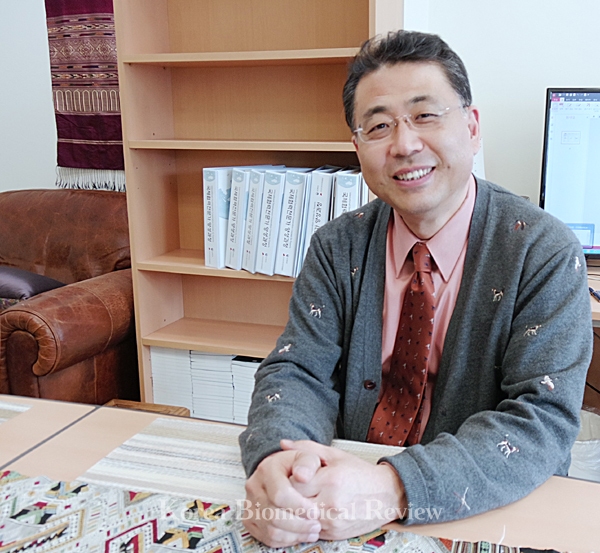ODA expert Sir set to turn out more people like himself
“Korea has changed itself from an aid-receiving country to an aid-giving one. This is unparalleled in the world. My dream is to see many countries like Korea emerge.”
So said Jushua Sir, a professor at Graduate School of Public Health, Yonsei University. Professor Sir is a person with colorful careers as a doctor, a missionary, a teacher and an expert of overseas development assistance (ODA). Equally ambitious is his dream – to turn as many aid-receiving countries as possible into another Korea. Sir opposes unconditional help, however, because he knows well that free aids have their limitations to making recipients stand on their own. And that explains why he chose to train experts of ODA as the way to make his dream come true.
Professor Sir graduated from Yonsei University College of Medicine in 1985, taught anatomy at his alma mater, worked as an exchange professor at the Mongolian National University of Medical Science that made academic exchange agreement with Yonsei University Health System and served as the administrative chief of Mongol-Yonsei Friendship Hospital.
Also, Sir took the post of vice presidency at Food for the Hungry International and served the secretary general of Korea Foundation for International Healthcare (KFIH) for three years from 2012. All these careers made him an unchallenged ODA expert in and outside of the nation.

Professor Sir, who has shown excellent performances as an academician, administrator and field worker, has set about to train experts. Last month, he moved to the position of a research professor at Medical Education of International Health Science at Yonsei University.
The first thing he did as soon as he took the current post was to open an educational course to train experts in health security field in developing countries, jointly with Korea International Cooperation Agency (KOICA). Starting this September, he will select 60 candidates from 70 developing nations and run a five-semester program named “Global health security and health science M.A. course” over the next five years. KOICA will provide financial support of 2.5 billion won ($2.2 million) for the program.
Professor Suh will take the lead in the training course. And his team will play a central role in operating the course to prevent, detect and respond to global health security issues. Participants who study in Korea will go back to their works and conduct researches and experiments in infection tracking and vaccine research fields in cooperation with related organizations, including International Vaccine Institute (IVI).
“Korea may be the first country to open an M.A. course like this. The course will provide opportunities for both Korea and developing nations. Korea still has insufficient programs and abilities to train ODA experts. For Korea to teach foreigners appropriately, the country should strengthen its capability,” Sir said in a recent interview with Korea Biomedical Review.
He went on to say, “In the process, we can transfer out experiences to people from developing countries. In health and medical areas, Korea has reached a level little different from America’s. Especially officials from the Third World countries in Asia prefer Korea (because of geographical and cultural proximity).
Sir said he could feel significant changes recently in how the Koreans see ODA as well. Notably, the interests in ODA have completely changed among young people. “Who will say ‘no’ to overseas travel,” he said jokingly. Young people’s perception has changed as they watch Koreans playing active part on international stages.
In the first half of this year, he will focus on selecting trainees who will take the course beginning September while operating a course for higher officials with the subject of “unified healthcare and digital health” at the Graduate School of Public Health. He received a request to observe the course from a professor in charge of the same course at another graduate school. Sir will also have to take time out of his tight schedule to make business trips to foreign countries, including Mongol, Uzbekistan, and Ghana. He has a hectic schedule but appears happy.
“My goal is to make Korea help other countries better. Korea has changed itself from a nation that got help to one that gives help after joining the Organization for Economic Cooperation and Development. No other countries have attained such growth,” Sir said. “We have done this by learning from other nations. Therefore, Korea needs to transfer its experiences to other countries so that they can overcome poverty and stand on their own. My dream is to see many nations like Korea emerge.”

